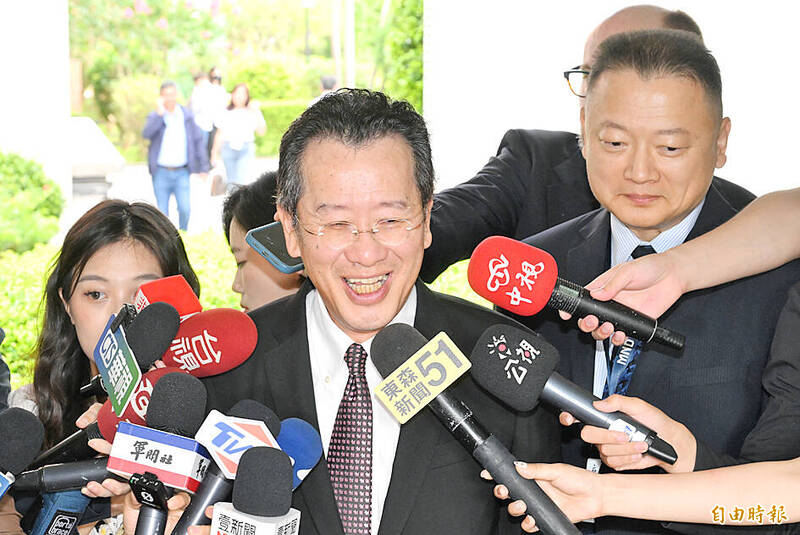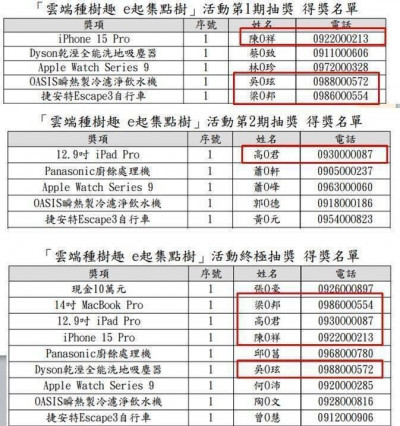《TAIPEI TIMES》Taiwan to set up military technology unit

Minister of National Defense Wellington Koo speaks to reporters in Taipei on Friday last week. Photo: Liu Hsin-de, Taipei Times
DEFENSE INNOVATION: The unit is to combine the resources and capabilities of the Chungshan Institute of Science and Technology and civilian-run technology firms
Staff writer, with CNA
Minister of National Defense Wellington Koo (顧立雄) has pledged to form a military technology development unit to integrate research on the development of military and civilian defense technology, with the aim of boosting the nation’s asymmetrical warfare capabilities in the face of growing military threats from China.
Koo, who assumed office on May 20 as one of President William Lai’s (賴清德) Cabinet appointees, made the pledge during a media roundtable on Friday last week.
Koo, 65, the first civilian defense minister in more than a decade, listed several top priorities in his new role, including boosting the nation’s asymmetrical warfare capabilities, joint warfare capabilities and whole-of-society resilience, as well as continuing to reform the nation’s reserve forces.
On enhancing asymmetrical warfare capabilities, which aims to counter the heavy weaponry of Chinese forces with smaller and more mobile equipment, Koo said his ministry would launch a new military unit similar to that of the US Department of Defense’s Defense Innovation Unit (DIU).
The Taiwanese version, to be listed under the Ministry of National Defense’s Department of Integrated Assessment, would work as a platform to combine the resources and capabilities of the ministry’s top research unit — the Chungshan Institute of Science and Technology — and other civilian-run defense technology companies, Koo said, pledging to personally supervise the new unit’s operations once it is formed.
Koo also said that unlike the US, Taiwan does not have a big budget to develop defense technology from scratch.
The new unit would instead focus on investing in relatively mature defense technologies, such as next-generation uncrewed aerial vehicles and uncrewed ships, to continue to maintain Taiwan’s current edge in terms of asymmetrical warfare in the defense of the Taiwan Strait, he said.
However, Koo did not give more details on the planned unit, including when it would be launched and exactly how much money it would have to spend.
Launched in 2015, the Pentagon’s DIU is staffed by civilians and active-duty and reserve military personnel. It is headquartered in Mountain View, California — in Silicon Valley — with offices in Austin, Boston, Chicago and the Pentagon.
The US DIU “strengthens national security by accelerating the adoption of commercial technology throughout the military and bolstering our allied and national security innovation bases,” its Web site says.
“DIU partners with organizations across the Department of Defense to rapidly prototype and field dual-use capabilities that solve operational challenges at speed and scale,” it says.
The defense ministry in 2016 said that it would create a “Taiwanese DARPA” in 2017, a reference to the US Defense Advanced Research Projects Agency.
At the time, it said the proposed organization would be staffed by 20 project managers with doctorates in a defense technology-relevant field or who had experience in the industry, and that it would receive an annual budget of NT$300 million (US$9.26 million).
The unit was intended to facilitate closer military-academic collaboration and ensure that defense projects benefited from up-to-date knowledge, including Academia Sinica’s latest projects, it said at the time.
The project later floundered amid opposition from military officials and legislators who demanded that the defense ministry improve the integration of research-and-development capabilities in the government, academia and the armament production sector, rather than adding more bureaucracy.
新聞來源:TAIPEI TIMES























